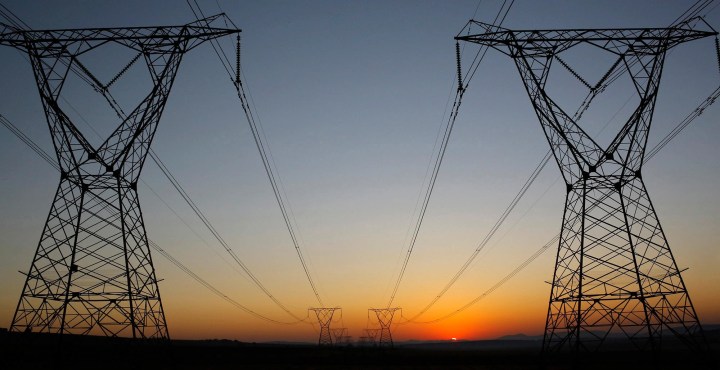POWER TARIFFS
Municipal electricity price increases calculated in an ‘unlawful’ manner, court rules

The National Energy Regulator of South Africa has been ordered to develop a new way to calculate the increase in the annual electricity tariffs for municipalities after a major legal victory for two of South Africa’s business chambers.
The Gauteng High Court has found that the National Energy Regulator of South Africa (Nersa) used an unlawful way to calculate annual electricity price increases for municipalities, declaring their guidelines and benchmarking method unconstitutional and giving them a year to fix it.
Most municipalities were allowed to increase the cost of their electricity provision by about 7.7% this year.
The court heard that the application was brought to, among other things, bring an end to municipalities passing on to consumers the cost of their management failures, including a lack of infrastructure maintenance as well as rampant electricity and cable theft.
Consumers pay these increases in addition to increases relating to the cost of electricity itself that is requested by Eskom annually.
Up to now, Nersa did not require municipalities to show the relationship between its actual costs and the tariffs it is applying for, or the benchmark tariffs generally. It merely had to bring itself within a guideline for its application to be approved.
Read in Daily Maverick: “Nersa’s methodology for increasing electricity prices is ‘unlawful’, business chambers argue”
The Nelson Mandela Bay Business Chamber and the Pietermaritzburg and Midlands Chamber argued that this has allowed for municipalities to load tariffs with costs for which the consumer should not be responsible.
The application by the chambers was supported by Eskom.
The chambers participated in consultations for more than a year on this issue, taking action when Nersa confirmed that it would not review its methodologies without a legal challenge.
Denise van Huyssteen, CEO of the Nelson Mandela Bay Business Chamber, said: “We are very pleased with the judgment which was delivered in our favour by the high court today.
“We believe that this will have the necessary effect on changing the way electricity tariffs are set, and that in the near future municipalities will not be able to add on costs to consumers for their own inefficiencies.
“Furthermore, this case will potentially impact the determination and approval of electricity tariffs charged by municipalities across the entire country, ultimately benefiting all South African businesses and consumers.”
This was the second time the Nelson Mandela Bay Business Chamber had taken on a case of this nature.
“We were successful over a number of years in restricting both Eskom and municipal electricity increases, thus providing savings to businesses and consumers across the country.”
An ‘emphatic judgment’
MC Botha, an electricity tariff expert and legal adviser who acted on behalf of the chambers and its members, said: “It was an emphatic judgment and it has been long awaited by commerce and industry. While the regulator may seek leave to appeal, we believe the judge has handed down a carefully reasoned and sound judgment”.
David Mertens, the lead of the Electricity Challenge Cluster for the Nelson Mandela Bay Business Chamber, said: “This outcome demonstrates that the Nelson Mandela Bay Chamber’s approach to establishing clusters with businesses in order to collaborate in finding solutions to common problems is effective.”
Read in Daily Maverick: “Energy regulator to oppose court application by ecogroup to review Karpowership licences”
Melanie Veness, CEO of the Pietermaritzburg and Midlands Chamber, said: “This win is a positive development and means that the methodology for determining municipal tariffs will be based on the efficient cost of distributing electricity.
“Municipalities will not be permitted to implement excessive tariffs and to utilise this income to fund escalating electricity losses which are the result of their own inefficiencies, which includes the lack of maintenance of infrastructure as well as rampant electricity and cable theft.”
Visit Daily Maverick’s home page for more news, analysis and investigations
In her order, Judge Elizabeth Kubushi gave Nersa a year to adopt a cost-reflective method to calculate the annual increases, ordering that the new cost structure must be used when calculating the 2024/25 increases.
Charles Hlebela, head of communications for Nersa, said they are studying the judgment and will advise on a way forward.
Judge Kubushi said in her ruling that the evidence shows that if a municipality’s proposed tariffs fall within the parameters of the guideline document, Nersa will approve them without an assessment of that municipality’s cost of supply or inefficiencies, and without determining what would be a reasonable margin or rate of return for the municipality.
Those matters are considered only if a municipality’s proposed tariffs are higher than the upper parameters in the guideline document. There is no public participation element to the individual municipal tariff approval process, as contended by Nersa, she added.
Nersa argued that it was asking for financial information from the municipalities.
But the judge said the evidence before the court was that Nersa does not use the municipalities’ financial information to test their proposed tariffs for compliance with the law, but instead uses a sample of these forms to calculate an average rate of increase.
Read in Daily Maverick: “No joke: Eskom wants you to pay 32% more for your electricity from 1 April 2023”
“At the time the information is collated from the sample, it would already be outdated,” she added.
This, the business chambers argued, led to higher tariffs than needed in municipalities.
In many cases, municipalities also use electricity tariffs paid by residents to do other things, like pay salaries, and these funds are not ringfenced.
In August 2022, Deputy President David Mabuza said municipalities owed Eskom R49.1-billion. DM/MC




















 Become an Insider
Become an Insider
Comments - Please login in order to comment.